
Many of these points I have observed during decades spent in the retail industry, as well as from the perspective of an introvert who notices a lot of details. After all, we can often learn a great deal just by quietly observing personal interactions, responses, body language and individual reactions of others, don't you think? I've often felt that business growth which evolves into a well-crafted blend of successful techniques is similar to the spices and seasonings which bring a culinary masterpiece to perfection, so I hope you find these comparisons inspire you to brainstorm your own ideas!
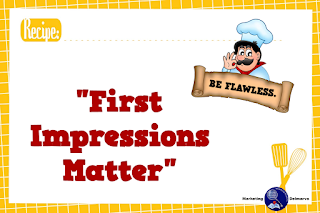
One): Be on your game.
Ensuring a comfortable experience and delivering the impression that "we really care about you" is huge. And.....it's often overlooked. How a person feels from the second they pull up to your storefront or place a phone call to your office matters far more than most people realize; perception is everything! How an employee greets a client, for example, can give them an instant "warm and fuzzy feeling" that they made the right choice to be in YOUR ESTABLISHMENT......just as easily as lack of interest can create a sense of distrust. Be on your game because you only get one shot at the first impression. How can you learn what works? Observe reactions, ask some of your repeat customers for their thoughts or create a short online poll.
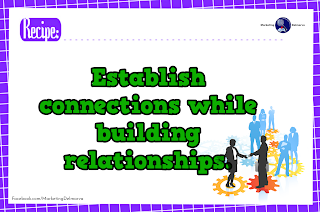
Two): Build trust.
Nothing creates a sense of trust like finding out that other people understand. Individuals who sense there is empathy for their situation are relieved to hear that you've been there too. Being able to ask "steering" questions (which kind of washer do you have, what special occasion is the cake for, can you tell me a little bit about your grandfather, etc) provide clues about what you can do for them. Do I need to point out that listening is absolutely, indisputably, essential here? If you are three steps ahead waiting to close the sale you're going to miss important details so learning to listen is a big, BIG deal. What could be a tool to help you gather information? Perhaps a visual storyboard which illustrates options the customer can point out would be a great start!
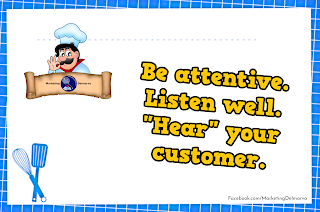
Three): Show you care.
This one is easy; if you want to appear caring, then CARE. It's really hard to fake it and most people will see right through someone who is trying to carry on a conversation with others, checking their phone while waiting on a customer, failing to pay attention and pick up important details. Just.....don't do those things. Remember, you are here to solve their problems and be a Super Hero! Face the person you are speaking to and make eye contact. And SMILE (but not too much because that can get creepy). How to know what works? Take turns observing the body language and behaviors of people while dealing with employees, or ask them to take a short online survey about their experience.

Four): Be knowledgeable.
You've heard the phrase "an educated consumer". Does your business model set up a scenario which walks prospective buyers through the options or stages of a process? Are you offering a simple visual as reference which shows the lifespan of one type of piece of machinery or equipment compared to another? Being able to have your presentation "flow" along in a process shows the customer they are valued, that you are committed to their satisfaction and pleased to help. Some of the highest praise I have seen came from people who walked in to a situation where they knew nothing, and left feeling informed, able to make their best decision and empowered. Of course it goes without saying (but we'll say it anyway since we've seen the other side of the equation), too many charts and comparisons can overload a person just as easily so keep things simple. P.S. This also means you, along with your staff, must be on the cutting edge of industry trends at all times and knowledgeable about recent developments and new products.
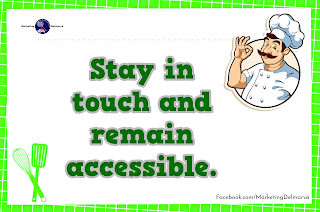
Five): Respond promptly.
Customers want answers and they want them NOW. Today's tech options mean that even if your business doesn't have a call center or overseas phone support, you need to act as if you do. After all, these are often the first lines of communication and nothing annoys people more than feeling ignored. Clearly defined protocols are a must, both for employees on how to handle requests, questions and complaints, as well as customer FAQ which states procedure details. Such information should be posted visibly on your website and social channels, such as a call policy assuring them of a response within 12 hours or directing visitors to an online form which collects all the necessary details. Get in the habit of asking how the process felt to the consumer at the conclusion of your call.

Six): Acknowledge the customer.
How many times have you walked into a restaurant or retail store and..... waited. Perhaps you've stood at a hostess station for a few minutes and then glanced around for someone, anyone to make eye contact with, or finished shopping and proceeded to the sales counter only to find....no one. Even WORSE is when you spy the staff off in a corner chatting amongst themselves or giggling over their cell phones, right? Don't be that type of place. Define your expectations and maintain standards about eyes to the front and a focus on the guest being of the utmost priority! I could suggest that to learn more about this you might ask or poll your customers but I'm pretty sure we're all in agreement here that NO ONE is happy being ignored.
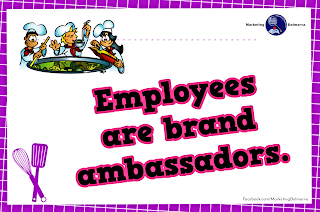
Seven): Employees are the voice of your brand.
It's great to have lofty goals for how you treat clients, arrive at appointments, educate your customers and strive for the best possible experience. However, assuming that you are not the only aspect of the business, are you setting the rest of the team up to "WOW" them as well? Will someone who had a memorable transaction or purchase when dealing with you also find that dedication when they return on your day off? If you aren't training employees, establishing core principles and writing up documents for training purposes you are setting your people up to fail - and your clients to feel cheated. An individual who has a super experience once and comes back to a far less exceptional scenario isn't going to remember the first time - what will stick with them is disappointment in the company. How to combat this? Make your expectations crystal clear and lay the goal of an outstanding transaction out in specific detail; review; analyze; repeat.
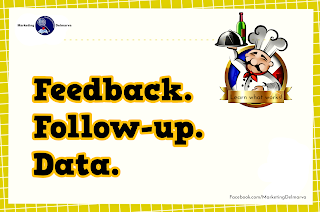
Eight): You don't know if you don't ask.
Follow-up matters! It's an absolutely critical element of evaluating what's working and what needs immediate attention You can't learn from situations you aren't aware of nor can you solve problems you didn't know existed. Make the process of gathering data an essential one which is analyzed and reviewed.
Ensuring that the people who come to do business with you are satisfied and happy is no small task. Matter of fact, this is an effort requiring much more attention and time than many entrepreneurs realize! The good news is however that by focusing on such details you have the ability to stand out and position your business above competitors by shining in such areas.
Thank you for reading and I hope you found some inspiring suggestions here. Have a great week! Andrea @ Marketing Delmarva
Connect with me! Follow Marketing Delmarva @







